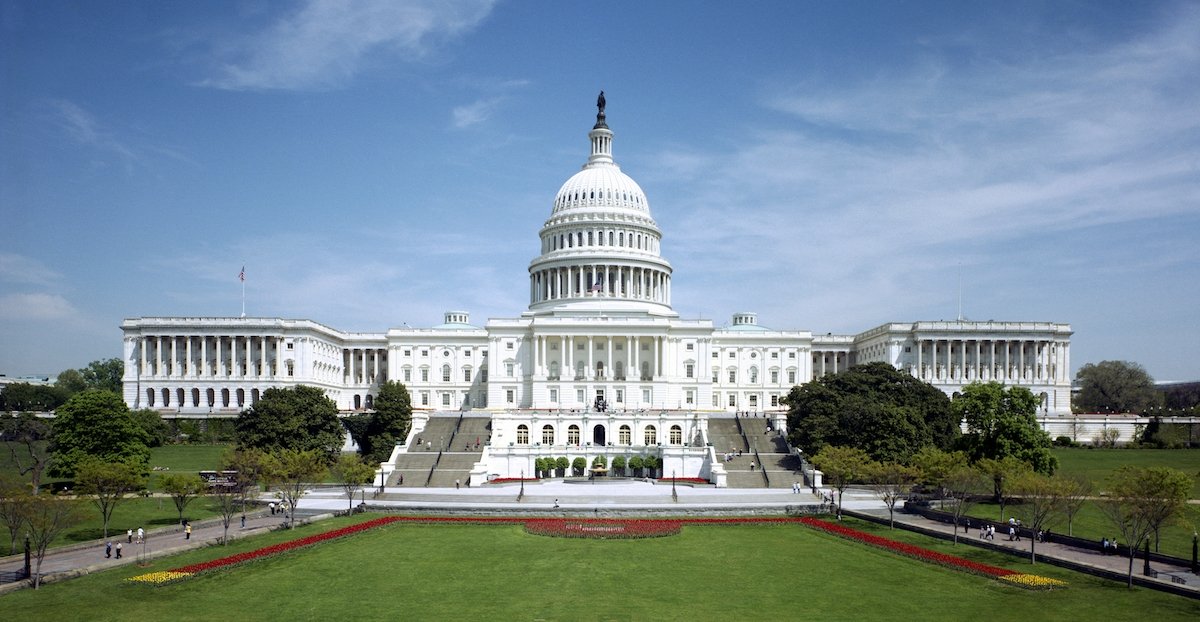The CEOs of Facebook, Google, and Twitter squared off with lawmakers Thursday in a hearing focused on Section 230 of the Communications Decency Act.
Facebook CEO Mark Zuckerberg, Google CEO Sunday Pichai, and Twitter CEO Jack Dorsey were the three witnesses testifying before the U.S. House Energy and Commerce Committee at the joint hearing. Lawmakers pressed the three tech executives on their platforms' content moderation and efforts to curb misinformation.
Although Zuckerberg, Pichai, and Dorsey are no strangers to testifying to lawmakers, the hearing marked the first time the three appeared before Congress since the Jan. 6 storming of the U.S. Capitol and the coronavirus vaccine rollout.
Rep. Mike Doyle, the chairman of the U.S. House subcommittee on Communications and Technology, said that his staff was easily able to find anti-vaccine content on Facebook, Instagram, and Twitter.
In his opening remarks, Zuckerberg shifted blame from Facebook for fomenting the January Capitol riots. Instead, he attributed the unrest to President Trump and a "political and media environment that drives Americans apart."
Lawmakers appeared eager to hold the technology companies accountable. The focus appears to be reforms to Section 230 of the Communications Decency Act, even if there was no consensus on how to reform the act.
Section 230 reform
The legislative focus of the hearing was Section 230, a portion of the Communications Decency Act that shields online platforms from liability for the content that their users posts and allows them broad freedom to moderate content. It has become a key target for reform from both Republicans and Democrats, though for different reasons.
Republicans grilled the tech CEOs about the alleged censorship of conservative voices on the platform. Democratic lawmakers were more concerned about the proliferation of misinformation, both about the COVID-19 vaccines and the 2020 election.
One prominent theme among Republican arguments to Section 230 was protecting children. In her opening remarks, Rep. Cathy McMorris Rodgers said she was concerned about the safety and mental health implications of social media.
"I have two daughters and a son with a disability. Let me be clear," she said. "I do not want you defining what is true for them. I do not want their future manipulated by your algorithms."
In their written statements, each tech CEO defended their platform in different ways. Zuckerberg said he welcomed Section 230 reforms that increased transparency and focused on implementing systems to moderate unlawful content. Pichai didn't offer solutions, but said he was concerned about whether Section 230 updates could backfire. Dorsey said that mandating internet platforms to behave the same way "reduces innovation and individual choice."
A memo from House committee members didn't seem appeased by arguments from the three executives. It cited research that indicated misinformation and extremism are still rampant on the platforms.
Legislative changes
Potential reforms to Section 230 have come from several places, including Congress and the Justice Department. One bill, unveiled in February, could strip protections from platforms if they are monetized and harmful content is identified. Another bill from late 2020 focused on curbing alleged censorship.
Although some of the tech CEOs appeared to welcome reform, others in the technology industry are concerned. Back in December, a group of online heavyweights released a statement defending Section 230, saying they rely on the legal shield to "make their platforms safe for users and support free expression."
Lawmakers still appeared divided about what how to reform Section 230. By the end of the hearing, it was unclear whether they were any closer to legislative updates.
The entire discussion was colored by a clear lack of lawmaker understanding about the internet landscape. One lawmaker, for example, seemingly thought that Facebook owned YouTube, and questioned Zuckerberg about his family's use of the video sharing platform.
However, the fact that change is coming was made clear. At the start of the hearing, Rep. Jan Schakowsky said that "self-regulation has come to the end of its road."
 Mike Peterson
Mike Peterson







-m.jpg)






 Wesley Hilliard
Wesley Hilliard
 Stephen Silver
Stephen Silver
 William Gallagher
William Gallagher
 Charles Martin
Charles Martin
 Marko Zivkovic
Marko Zivkovic
 Andrew Orr
Andrew Orr
 Amber Neely
Amber Neely










33 Comments
Keep 230, and make it clear that bans and algorithmic promotion are both speech by the platform (which doesn't get 230 protections), rather than merely on the platform.
Platforms remain not liable for what other, unrelated people say on them (comments, product reviews. etc.), while they are unambiguously responsible for decisions they or their agents make. Done.
Though it's more than a little preposterous to claim more conservatives are being censored. Twitter and Facebook both absolutely bend over backwards to find the most charitable interpretation of anything conservatives say. Tom Cotton, a sitting US senator, used Twitter to call for the military to execute protestors. He still hasn't even been suspended temporarily.
You can't keep 230, and not allow for user bans. There's literally no way to do it.
All of these companies have policies against the types of destructive disinformation and hate speech which congress has issue with.
They’re in front of congress because their history of poor enforcement of these policies have made them a magnet to nefarious individuals.
Just this week the CCDH released a report demonstrating that just 12 individuals are responsible for the majority of anti-vax information. Similarly political disinformation dropped massively after Trump was booted from Twitter.
It’s plain to see that these companies could do a lot more to clean up their services.
However a problem also exists: certain political figures want this disinformation and are equally likely to punish these companies for culling such disinformation.
Why can't 230 protect the SITE and the POST? These sites want their cake and eat it too...
If there are no repercussions for the SITE why do they have to remove the POST?
BUT if you want to remove POST, then you don't get 230, you get something else...
Just a thought!
Laters...